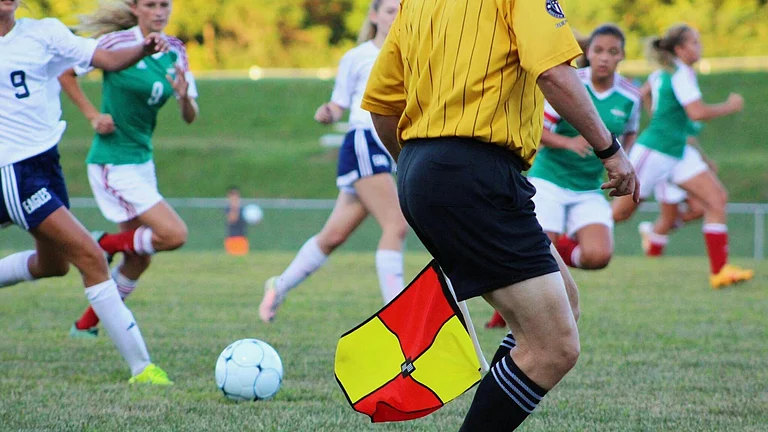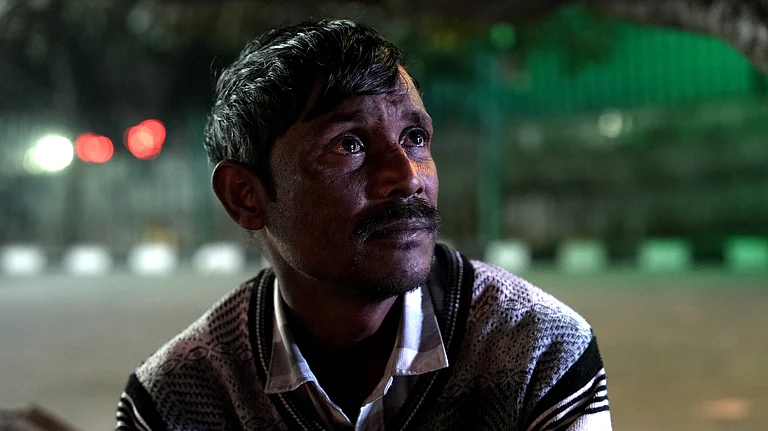The Alabama Supreme Court on Wednesday ruled that frozen embryos can be considered children under state law, a move that raised concerns among would-be parents in the state who wish to seek fertility treatments like in vitro fertilisation (IVF) to conceive children.
As per the ruling, a person could be held liable for accidentally destroying frozen embryos as "unborn children are 'children' ... without exception based on developmental stage, physical location, or any other ancillary characteristics", Justice Jay Mitchell wrote in the majority ruling by the all-Republican court.
What is the process of freezing an embryo?
Embryo freezing involves IVF, a procedure in which eggs are removed from a woman's ovary and combined with sperm in the laboratory to form embryos. The embryos are frozen and can later be thawed and placed in a woman's uterus.
One in six families grapples with infertility in the state, says Barbara Collura, the president and chief executive of Resolve, which represents the interests of infertility patients, in an interview with New York Times. In such cases, these families approach fertility clinics, who help extract as many eggs as possible from a woman, then fertilise them to create embryos before freezing them. Then a procedure is done to place one or more of the fertilised eggs, called embryos, in a uterus, which is where babies develop.
What implications will this judgment have?
While the judgment doesn't specify that IVF is illegal, or that one can’t freeze embryos, the fact that there is a lot of ambiguity in the judgment is even worse, activists said. Hours after the ruling, patients seeking IVF treatment called up their fertility clinics with concerns and confusion about whether their treatment process would go through and if it was ‘legal’.
Gabby Goidel, 26, who is pursuing IVF treatment in Alabama after three miscarriages, said the court ruling came on the same day she began daily injections ahead of egg retrieval.
“It just kind of took me by storm. It was all I could think about and it was just a very stressful thing to hear. I immediately messaged my clinic and asked if this could potentially halt us. They said we have to take it one day at a time,” Goidel told AP.
She turned to IVF and preimplantation genetic testing after multiple miscarriages related to genetic issues.
Groups representing both IVF treatment providers and patients called the decision a “terrifying development for the one-in-six people impacted by infertility” who need in-vitro fertilisation. If an embryo is considered as a ‘person’, it raises questions like if IVF treatment providers can freeze future embryos created during fertility treatment or if patients could ever donate or destroy unused embryos – as not all IVF embryos are used.
The Medical Association of the State of Alabama said in a statement: "The significance of this decision impacts all Alabamians and will likely lead to fewer babies - children, grandchildren, nieces, nephews, and cousins - as fertility options become limited for those who want to have a family."
Have any hospitals in the state shut their IVF services after the judgment?
In the wake of the ruling, Alabama’s largest hospital has paused its IVF services over fears of criminal prosecution. Issuing a statement, the hospital said that while it would continue retrieving eggs from women's ovaries, it would halt the next step in the IVF process, in which the eggs are fertilised with sperm before being implanted into the uterus.
“We must evaluate the potential that our patients and our physicians could be prosecuted criminally or face punitive damages for following the standard of care for IVF treatments,” the statement said.
Where does this judgment fit in the larger debate on abortion and reproductive rights in the US?
After the US Supreme Court in 2022 overturned the 1973 Roe Vs Wade judgment that had made abortion a protected right under the American constitution, states made their own laws banning abortion.
Apart from Alabama, which has a total ban on abortion at all stages of pregnancy, 23 other US states enacted laws to ban all or nearly all abortions by January 2023. But these laws did not impact IVF treatments, which still remain legal in all states, including Alabama.
However, the latest ruling might ignite debate on whether IVF should be restricted in other conservative states because of this ‘persoonhood’ argument.
Quoting heavily from the Bible, Chief Justice Tom Parker said IVF won’t end in Alabama, but it will be up to the courts to dictate how IVF can be performed “in a way that won’t cause harm to unborn children and won’t incur the wrath of an angry God.” “Even before birth, all human beings have the image of God, and their lives cannot be destroyed without effacing his glory,” Parker wrote.























